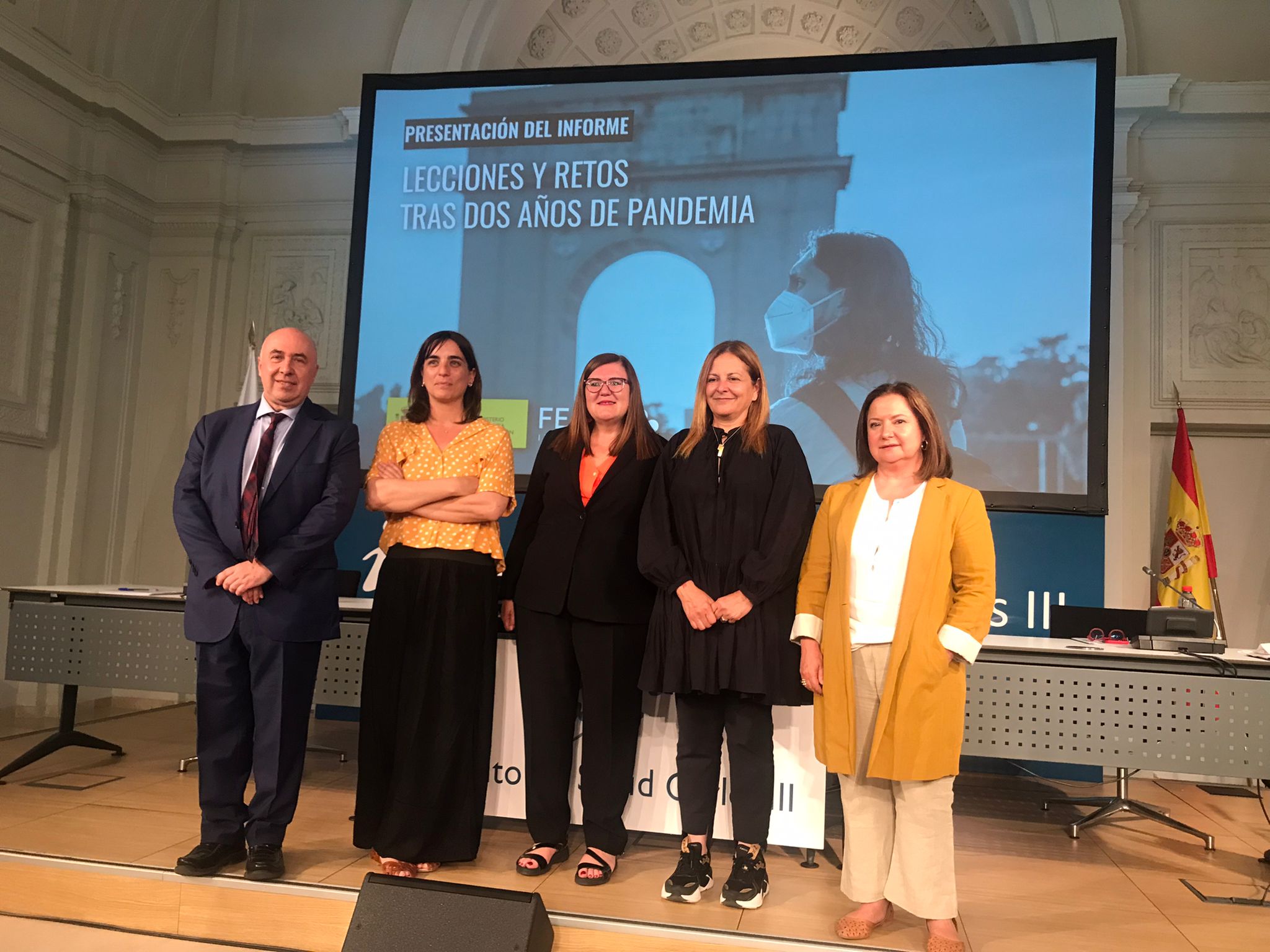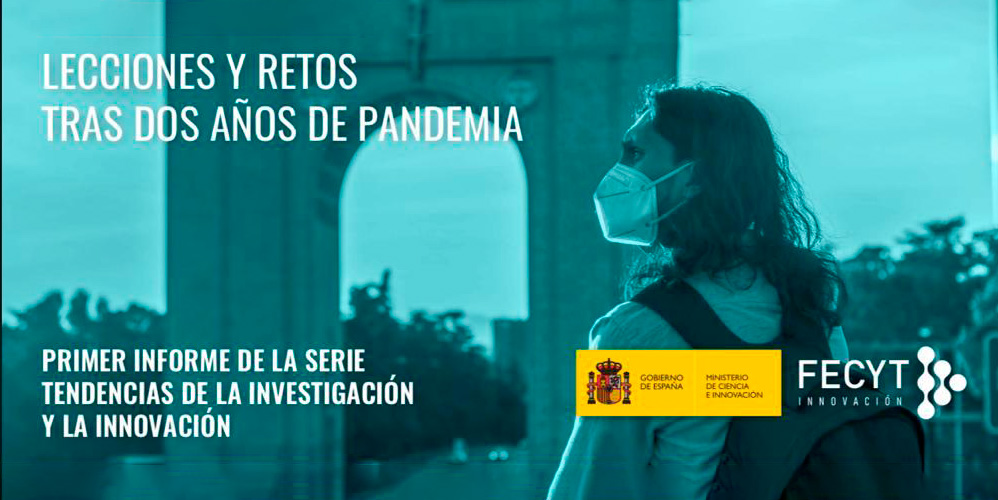
For this report, whose objective was to analyze the response of Spanish society to the COVID-19 disease from three areas: research, innovation through companies, and the general public, FECYT has had the collaboration of Núria Montserrat, ICREA research professor at the Institute for Bioengineering of Catalonia (IBEC) and principal investigator of the “Pluripotency for organ regeneration” group.
The document is based on the reflections of 19 experts and 8 companies that take stock of these two years of the pandemic through their personal experiences, as protagonists who have actively participated in the fight against COVID-19, either from the field of research and innovation or experts who give voice to the emotional effects that this health crisis has caused in different groups of society.
In the field of research, the worldwide scientific production on COVID-19 in the last two years of the pandemic has been analyzed, highlighting the production of more than 375,000 documents on COVID-19, in which Spain occupies the seventh position with participation in 4.4% of them.
“We are many researchers who adapt our research to understand the COVID-19 disease. This decision has impacted our productivity concerning all those projects we were doing before the pandemic,” says Dr. Nuria Montserrat in the report.
Nuria Montserrat, a world leader in the creation of organoids, March 2020 co-led the first research using kidney organoids as a study model to identify drugs that block the effect of the virus and prevent SARS-CoV-2 from entering the cell to replicate and continue infecting. The first results of this research were published in the journal Cell in April 2020.

In addition to the participation of Núria Montserrat, the report also includes the participation of Cristina Calvo Rey, Head of Section of the Pediatrics, Infectious and Tropical Diseases Department of the Hospital Universitario La Paz; Joaquim Mullol Miret, Director of the Rhinology and Smell Clinic Unit of the ENT Department of the Hospital Clínic de Barcelona and ENT Specialist of Barnaclínic+; and Carlos Chiesa-Estomba, ENT Specialist of the ENT Department. Cristóbal Belda, Director of the Instituto de Salud Carlos III, explains in the document how they fulfilled the Government’s mandate to manage the COVID-19 fund, a 25 million euro fund to try to respond to the urgent problems regarding the symptomatology of the disease that were appearing in hospitals and the environment of primary care centers.
In the field of innovation, the report includes statements by the heads of eight companies that, in one way or another, have had to reconvert as a result of the pandemic, as well as the opinion of Javier Ponce, Director General of the Center for the Development of Industrial Technology (CDTI), who states that in this pandemic situation they have had to manage almost 80 million euros in partially reimbursable aid and extraordinary subsidies to deal with the health emergency declared by the COVID-19 disease.
And finally, in the chapter dedicated to society, there is a selection of ten experts in sociology and psychology who, through their reflections, give voice to the effects of the pandemic on society.
It should be noted that the active concern of the Spanish scientific community, the innovative attitude of many companies that have had to modify their business models, as well as the emotions that have emerged in Spanish society in the face of the health crisis caused by the coronavirus, have served to analyze the situation that the population has had to live through over the last two years. The report also highlights the consequences that we have had to face collectively.
Source and more information FECYT.
Access the report here (only available in Spanish)





